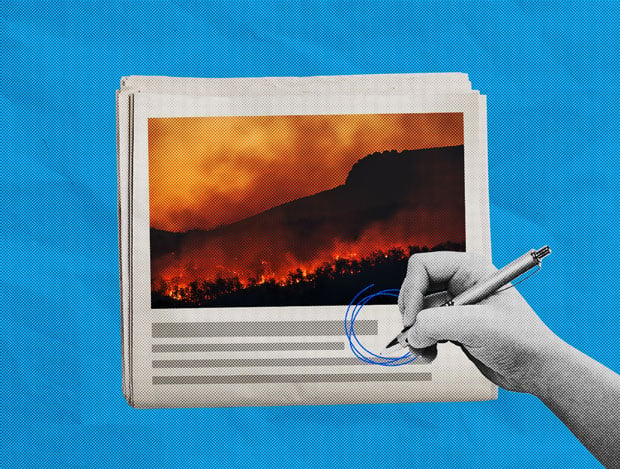How We Can Use the Media to Help Protect the Planet
Published Sep 10, 2024

Why is news media so important for climate and environmental activism? And how can we leverage it to effect real change?
When it comes to the fight to defend our food, water, and climate, news media may be one of the most important tools we have. It’s a powerful conduit for lifting up grassroots voices, holding those in power accountable, and sharing information with the public that might otherwise stay hidden.
But how exactly can we, as activists, leverage this tool effectively?
Food & Water Watch sat down with two experts to explain. At August’s Livable Future LIVE event, we spoke with Liza Gross, an award-winning journalist at Inside Climate News, and Aimee Dewing, communications manager for the Last Chance Alliance. In a conversation facilitated by Mark Schlosberg, Food & Water Watch Director of Public Affairs, Liza and Aimee discussed news media’s impact, how you can build relationships with reporters, and so much more.
How the Media Supported Organizing Against Big Oil in California
In 2022, California passed a landmark law to protect residents from oil drilling. But almost as soon as the ink had dried, the industry moved to shut it down — and used some pretty dirty tricks to do so.
With Last Chance Alliance, Aimee worked with a coalition of hundreds of groups, including Food & Water Watch, to get the law passed. Soon after, she began hearing reports from colleagues and community members about the oil industry’s tactics to gather petition signatures to challenge the law on the ballot. “They were standing outside gas stations and supermarkets, and really just straight-up lying to California voters,” Aimee remembers.
She reached out to reporters, including Liza, who began looking into it herself. In one neighborhood Liza visited, a signature gatherer told her that signing the petition would protect people from oil and gas drilling — when in reality, it would challenge a law to do just that.
Liza wrote and published a piece in Inside Climate News compiling stories like these. The piece helped drive media attention to the deception and increased public scrutiny of the oil industry. Finally, after months of relentless organizing, the industry withdrew its measure from the ballot, allowing the law to go into effect.
How We Can Contribute to News that Brings About Real Change
“This is a really good example of how reporters depend on activists and community members to find out about things that are happening, even in our own communities,” said Liza. In a reporter’s hectic day-to-day, it can be challenging to keep a pulse on everything. But we can play a vital role in filling that gap.
“Sometimes, from the outside, the media industry looks hard to crack into,” Aimee said. “But the truth is, a lot of reporters have their email addresses online!” As she reminded us, anyone can contact reporters directly to offer a correction on a story or provide a tip or new sources. And anyone can submit an op-ed or a letter to the editor to a newspaper.
Liza echoed this, encouraging us to get to know the reporters in our area and get in touch with them. Building relationships with reporters is mutually beneficial — activists and frontline community members are often the first to raise alarm bells or gather information on an issue, which can be a huge help to reporters researching a story.
At the same time, the news can drive much-needed attention to an issue and educate the public. They can also directly influence policymakers and leaders. “We find that more often than not, media is a surprisingly effective tactic to impact policy; shake up agencies; influence, inspire, or just, frankly, irk lawmakers into doing what you want,” Aimee said.
Liza stressed that one of the key goals of her work as a reporter is to hold policymakers accountable and hopefully move them to make changes. We’ve seen again and again that the news can do exactly that. Along with on-the-ground organizing and relentless advocacy, news media is an incredibly powerful tool to make a real difference. And as activists, we have so many opportunities to contribute!
Watch the Full Event for More Insights from Liza and Aimee
You can check out the recording of the event below to learn more about:
- How the landscape of climate and environmental reporting has changed, and what kinds of climate stories are gaining traction with readers;
- What goes into writing a news article, from pitching, to research, to fact-checking;
- The importance of lifting up the stories of frontline communities and how to do so ethically;
- Other examples of how news stories have had a concrete impact on policy; and more!
Resources and Links from the Event
- Read Liza’s work in Inside Climate News
- Learn more about the Last Chance Alliance in California
- You power our work! Make a gift to Food & Water Watch
- RSVP for our upcoming Livable Future Live Events
- Check out opportunities to volunteer with us
Enjoyed this article?
Sign up for updates.
TO TOP


